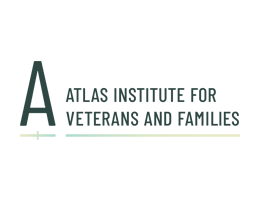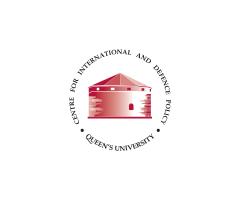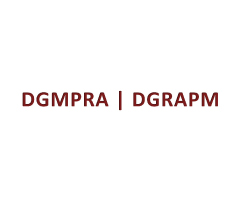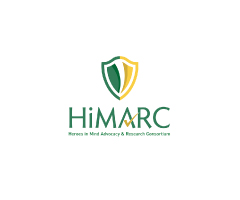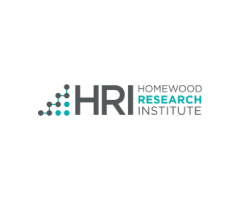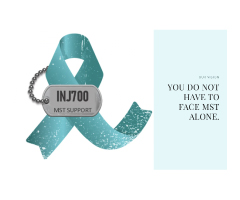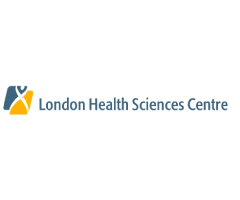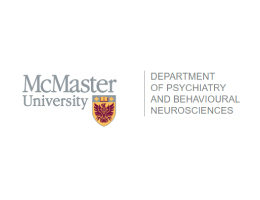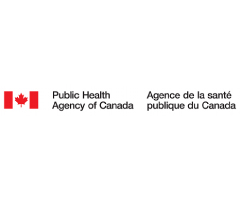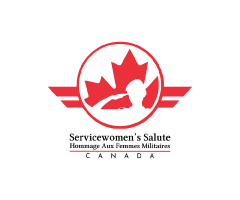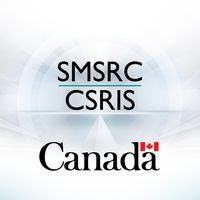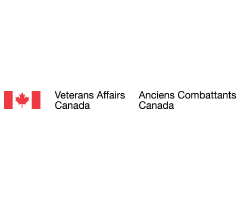Services and Supports for People Affected by MST
The Canadian Military Sexual Trauma Community of Practice, McMaster University’s Department of Psychiatry and Behavioural Neurosciences, and the Centre of Excellence on PTSD are hosting a three-part virtual symposium on Military Sexual Trauma.
This three part symposium, which began on June 3, 2021 and continues with live sessions on September 16 and 23, brings together researchers and policy leads from across universities, government departments and intermediary organizations, as well as individuals representing those with lived personal experience of MST.
Whether you are a researcher, clinician, policy-maker, frontline worker or someone who has experienced sexual harassment or sexual misconduct in the military, Military Sexual Trauma (MST) and its aftermath affects thousands of Canadians.
This event has ended. More information and resources are available below.
Content warning
This webinar may include content on difficult topics including suicide. The content may be hard to listen to and may bring up a range of emotions. We encourage you to care for your safety and well-being.
Services and Supports for People Affected by MST
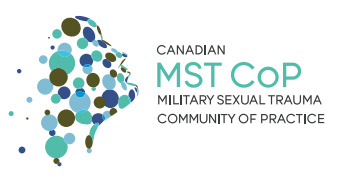
Related Resources
Speakers & Presentations
Read more about the speakers and view or download their presentations from this webinar. Note: Not all speakers have downloadable presentations available.
Dr. Alexandra Heber has over 35 years’ experience as a nurse, and as a psychiatrist. After a decade working with HIV+ clients and leading an ACT Team in Toronto, she enrolled in the Canadian Forces in 2006, and deployed to Afghanistan in 2009-10.
In 2016, she became inaugural Chief of Psychiatry for Veterans Affairs Canada. She also worked with the Public Health Agency of Canada to help develop the Federal Framework on PTSD. Currently, she co-chairs the Canadian Military Sexual Trauma Community of Practice.
Dr. Heber has written two online courses on PTSD treatment, using a Trauma-Informed Care approach. She has presented and published nationally and internationally on mental health in military, Veteran, and first-responder populations. Her current research interests include: mental health impacts of COVID-19, military sexual misconduct and trauma, and the effects of minority stress on women, LGBTQ2 Veterans, and other marginalized groups.
Dr. Heber is an Assistant Professor of Psychiatry at the University of Ottawa.
LCdr (Ret’d) Rosemary Park MSc CD is lead organizer of Servicewomen’s Salute – Hommage aux Femmes Militaires Canada, and Project Manager of the 2019-2023 Queen’s University Servicewomen’s Salute Portal Project.
Rosemary served in the Canadian Armed Forces as a Personnel Selection Officer from 1972-1993. Her service included principal researcher of the Canadian Forces’ 1979-1985 Servicewomen in Non-Traditional Environments and Roles (SWINTER) Trials, and NDHQ senior policy analyst of the Canadian Forces’ compliance with Canadian Charter of Rights and Freedoms Section 15, Canadian Human Rights Act facing legal challenge by military members and veterans.
As a military researcher, DND consultant and Veteran, she is the author of 45 military research reports, conference presentations and publications on servicewomen, women Veterans’ military service, inclusion, and story. As a community member living in York Region, Rosemary has been founder of three non-profit civic organizations, philanthropy donor funds, and the York Region Community Foundation. She was elected Board Executive of nine non-profits or charities, and appointed member of eight government, media, and academic-community committees.
Michelle Douglas (Lieutenant ret.) is a Veteran, a survivor of Canada’s “LGBT Purge” and an activist in the movement to seek legal equality for the LGBT2Q+ community over the past 30 years.
Michelle served as an officer in the Canadian Armed Forces from 1986 to 1989. Despite a distinguished service record, she was honorably discharged after being deemed “Not Advantageously Employable Due to Homosexuality.” After being fired by the military, Michelle’s landmark legal challenge in 1992 ended Canada’s formalized discriminatory policy against LGBT members of the military.
This experience launched a decades-long commitment to volunteerism and activism for Michelle. Professionally, Michelle had a 30-year career in public service. She retired from the Canadian Department of Justice in 2019 where she held the position of Director of International Relations.
Michelle currently serves as the Executive Director of the LGBT Purge Fund. Michelle is a member of the board of directors of the Michaëlle Jean Foundation. She was awarded the Queen Elizabeth II Diamond Jubilee Medal in 2012. In 2021, Maclean’s Magazine named Michelle one of their “Power List 50.” She is a graduate of Carleton University and resides in Ottawa.
Dr. Linna Tam-Seto is a Research Associate with the Trauma and Recovery Lab at McMaster University.
Dr. Tam-Seto holds a PhD in Rehabilitation Science and is a registered occupational therapist. Her research interests include understanding the health and well-being of Canada’s military members, Veterans, public safety personnel and their families during life transitions and changes.
Heidi Cramm, PhD, OT Reg. (Ont.) is an Associate Professor in the School of Rehabilitation Therapy at Queen’s University. Her program of research focuses on mental health and trauma among families of military, Veterans, and public safety personnel. She serves as Research Advisor, Canadian Institute for Military and Veteran Health Research (CIMVHR).
After retiring, with the rank of Captain in the Canadian Army, Annalise worked with a humanitarian organization, managing overseas projects on the ground in India, East Africa, and Southeast Asia.
In 2017, she went back to school to complete an additional degree, in Psychology, and then a graduate program in Executive Coaching. She works with organizations to create healthy (safe and inclusive) workplace cultures that lead to effective team performance. In terms of humanitarian work, Annalise still travels abroad to assist with projects and works as a leadership coach and consultant to help other charities expand their impact.
Laryssa Lamrock is the Strategic Advisor for Families at the Centre of Excellence on PTSD. She has a unique blend of experiences in nursing and military family deployment support. In addition, she has extensive knowledge and expertise in the field of peer support as well as lived experience as the spouse of a Veteran living with PTSD. She is also the daughter and mother of military members. Laryssa draws from these experiences as she advocates passionately for and represents the voices of military and Veteran family members.
After 12 rewarding years with the Operational Stress Injury Social Support (OSISS) program, Laryssa believes strongly in the importance of family involvement in the recovery process. It can improve the prognosis of mental health issues and have positive impacts on family functioning and wellness. Laryssa feels that there are many more services and programs that can be developed and made accessible to those supporting those who serve and have served in the Canadian military.
Dr. Denise Preston joined the Department of National Defence as Executive Director of the Sexual Misconduct Response Centre in May 2017. In that capacity, she is responsible for the delivery of a range of support services to Canadian Armed Forces (CAF) members who are affected by sexual misconduct, and for the provision of expertise and recommendations to the CAF to shape and monitor the development and implementation of training, policies, and programs to eliminate sexual misconduct in the CAF.
Prior to joining National Defence, she worked for the Parole Board of Canada for eight years as the Regional Director General for the Ontario/Nunavut region. As such, she was responsible for the delivery of the Board’s mandates in the region, which included information and support services to victims of federal offenders and establishment of a Victim Advisory Committee in partnership with the Correctional Service of Canada.
Prior to joining the Board, she worked as a psychologist for the Correctional Service of Canada for 19 years. She held a range of clinical, research, and managerial positions and worked in low, medium, and maximum-security institutions, as well as a psychiatric centre.
She has extensive experience working with sexual, violent, and mentally disordered offenders, and with victims of sexual abuse and assault.
She is a graduate of Queen’s University, with a PhD in Psychology, is registered with the College of Psychologists of Ontario, and is a member of the Canadian Psychological Association.
Dr. McKinnon serves as the Homewood Chair in Mental Health and Trauma and as Associate Professor and Associate Chair, Research, in the Department of Psychiatry and Behavioural Neurosciences at McMaster University. She is also the Research Lead in Mental Health and Addictions at St. Joseph’s Healthcare Hamilton and a Senior Scientist at Homewood Research Institute.
Dr. McKinnon completed her PhD in Psychology at the University of Toronto followed by a post-doctoral fellowship at the internationally-renowned Rotman Research Institute at Baycrest Centre. She is an elected Fellow of the Canadian Psychological Association and is dually licensed as a clinical psychologist and neuropsychologist.
Dr. McKinnon is well known for her work characterizing trauma-related illness and PTSD among military members, Veterans, first responders, and survivors of childhood abuse and trauma. She has also been involved in the development and testing of novel treatment interventions aimed at often unexplored aspects of PTSD and trauma, including guilt and shame, moral injury, dissociation, and cognitive dysfunction. Dr. McKinnon serves as the Chair of the federally-funded Centre of Excellence on PTSD’s Research Reference group and works closely with government sectors including Veterans Affairs Canada and the Canadian Armed Forces.
She has published over 100 peer-reviewed papers and chapters, and currently holds funding from the Canadian Institutes of Health Research, the Canadian Institute for Military and Veteran Health Research, Defence Canada, the Centre of Excellence on PTSD, and the Workers Safety Insurance Board of Ontario, along with numerous private foundations, including True Patriot Love, the Cowan Foundation, the Military Casualty Support Foundation, and the FDC Foundation.
LCol Tuka graduated from medical school in Hungary. She enrolled in the Canadian Armed Forces in 2000. After completing the Family Practice Residency Program at University of British Columbia, she served as a General Duty Medical Officer in Edmonton. During that time, she was deployed to Kabul, Afghanistan. Following that, she completed the Psychiatry Postgraduate Program at the University of British Columbia in 2009. She was deployed to Kandahar Airfield as a Military Psychiatrist in 2010.
She has since been serving as a Chief Psychiatrist of the Canadian Armed Forces and as Clinical Leader for the Medical Units in British Columbia.
Maj Carra Greenhorn has been a social worker for the past 18 years and in the CAF as a Social Work Officer for the past 16 years. Maj Greenhorn obtained her Bachelor of Arts Degree with a Double Major in Sociology and Law in Society from the University of NB, Fredericton Campus, in 1996, her Honours Bachelor of Social Work Degree with Distinction from the University of Windsor in 2003, and her Master of Social Work Degree from Carleton University in 2007.
Since joining the CAF, Maj Greenhorn has held the position of Program Manager for Psychosocial Services and Mental Health Services, Clinical Leader for the Mental Health Department, Senior Officer for Clinical Programs within the Directorate of Mental Health and Senior Officer for Social Work Development within the Directorate of Mental Health, which is her current role.
Maj Greenhorn has been posted to multiple bases including Petawawa, Borden, Halifax, and Ottawa. She has deployed twice on operations, once on Op ATHENA in Afghanistan in 2010 for seven months and once on Op REASSURANCE with HMCS Fredericton in May 2020 for three months. During Op REASSURANCE, Maj Greenhorn was awarded the Coin from the Minister of National Defense for her exceptional work in helping to maintain the mental well-being of the crew after the devastating crash of Stalker 22. Maj Greenhorn is a service spouse married to an MP and they have two beautiful boys, ages six and eight.
Dr. Rose is recently retired from the Edmonton Operational Stress Injury Clinic, where she held the position of Clinical Lead, Psychology, for nine years. Part of her duties involved conducting VAC Disability Assessments and it was in this context that she identified a pressing need to provide specialized clinical services to individuals with Lived Experience of MST.
Prior to working at EOSIC, Dr. Rose was employed by DND in the Ottawa area. She has also worked for Correctional Service of Canada, an EAP provider, and at a concurrent disorders programme in a large teaching hospital in Calgary. She maintains a small private practice and is involved in the joint initiative between VAC and DND to develop a Peer Support Programme for individuals with Lived Experience of MST.
The PowerPoint package with all the presentations from this event is available for download.
